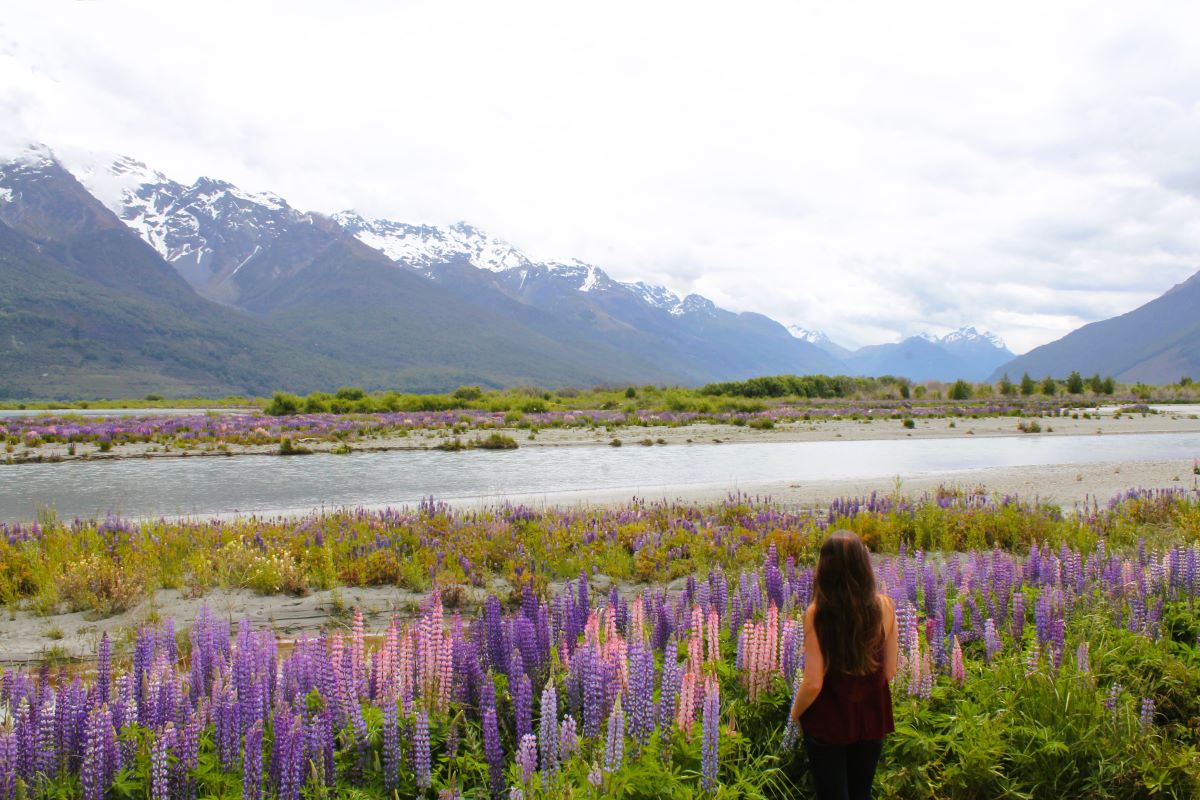You’re planning on moving to New Zealand?! Well, you’ve come to the right place. In this blog post, I’ll give you all the details on the different types of visas for New Zealand. Plus, I detail the best cities to live in New Zealand and how to find a place to rent in each one.
I will add, that searches for ‘moving to New Zealand’ have increased tenfold since the recent U.S. election. In fact, one large recruitment agency here has said that emails from Americans looking to move to New Zealand have increased by 5 emails per day to 100’s of enquiries a day.
We lived in New Zealand for over 4 years – first in the sunny Bay of Islands on the North Island and then in the adventure capital of the world, Queenstown on the South Island. And we were lucky that we got in on a Working Holiday Visa, which is fairly easy to get however if you’re not eligible for that getting a work visa for New Zealand can be tricky. You’ll read all about those below.
All in all, I will say New Zealand is a brilliant place to move to – the work/life balance here is excellent, the pay is great and the people are so friendly. However, finding a place to call home can be a challenge!
Read on how you can make your dream of moving to New Zealand a reality!
Is it worth moving to New Zealand?
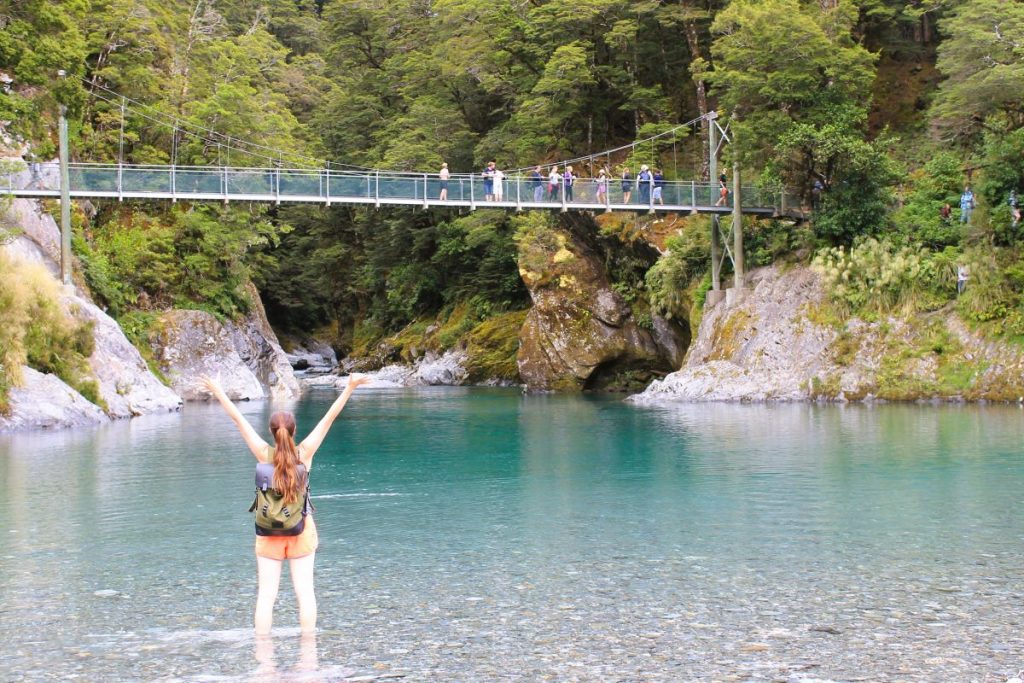
The short answer is yes, it’s definitely worth moving to New Zealand.
New Zealand is arguably one of the most beautiful countries in the world – think jagged snowcapped peaks and wild beaches. Not only is New Zealand home to the adventure capital of the world (Queenstown) but it’s actual capital city Wellington is one of the coolest cities I’ve visited. Plus, New Zealand is one of the safest countries in the world – and in my four years living here, I’ve never felt unsafe at night or getting public transport on my own.
The lifestyle you can have when you live in New Zealand is second to none; it’s very relaxed here, and of course, the stunning great outdoors and friendly people add to its appeal. However, it is expensive to live in New Zealand, so, of course, earning a decent wage is important to truly enjoy life here – rent can be very expensive, as I’ll explain later.
New Zealanders have a fantastic work-life balance with a minimum of 20 paid annual leave days and 10 paid sick days a year. If you’re a new mother, you can take up to 26 weeks of paid primary carer leave.
And in addition to the above, the average work week in New Zealand is 38-40 hours! So, no more 60+ hour work weeks here!
Is it difficult to move to New Zealand?
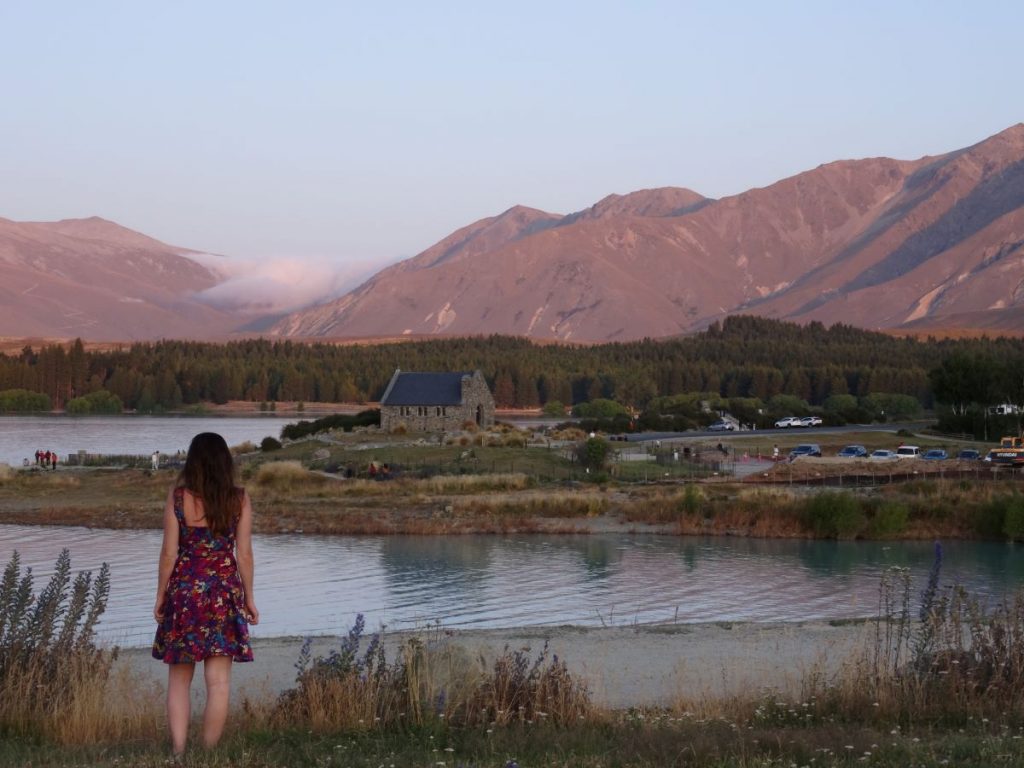
It is not easy to move to New Zealand.
Unless you’re an Australian citizen/ permanent resident or one of your parents was born in New Zealand, you will likely need to obtain either a working holiday visa or a work visa to live and work in New Zealand.
As I said, if you were born overseas to a New Zealand parent(s) you can apply to be recognized as a New Zealand citizen by descent. But for most people, you will need to apply for a work visa before moving to New Zealand (I’ve listed all these visas below).
How much money would I need to move to New Zealand?
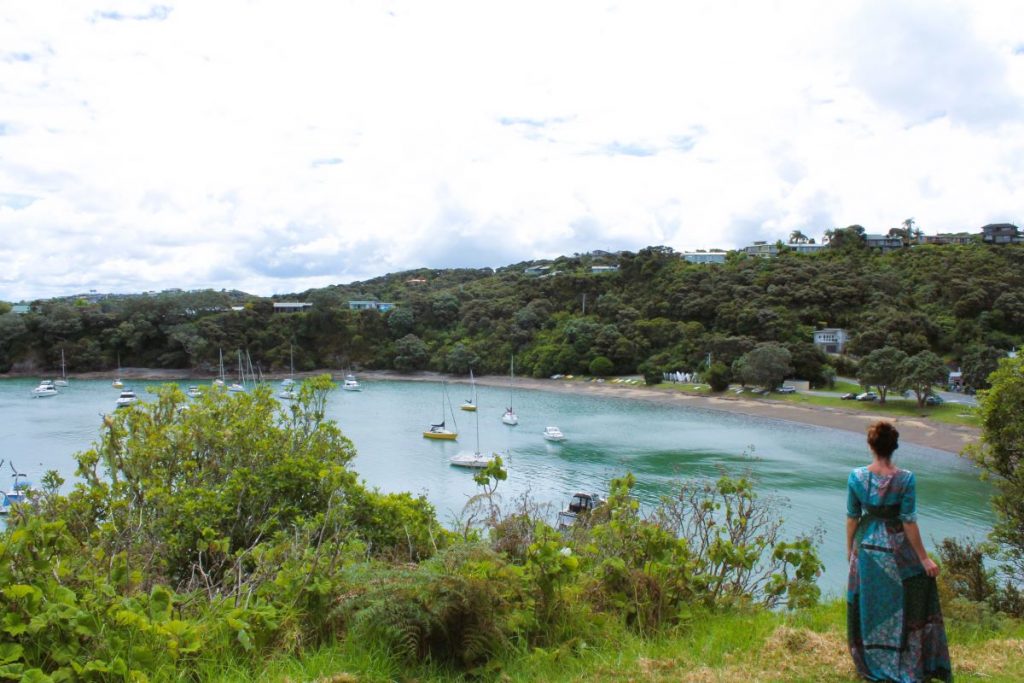
Before moving to New Zealand you need to remember that although it’s an amazing place to live, it is a very expensive country to live in. My estimation is that start-up costs to move to New Zealand will cost you approx. $4,000 NZD. This figure takes into account your first month’s rent, your rental deposit (usually one month’s rent), stuff for your apartment like bed sheets, cooking utensils, etc, and one big food shop.
If you plan on living in one of the big cities like Auckland or Wellington. Or even in Queenstown, you can expect to pay around $600 NZD per week for a two-bedroom property. On the other hand in Rotorua, you can expect to pay $500 NZD per week for a similar property and $550 NZD in Paihia in Northland.
Your best bet is to search for rental properties direct with rental agencies such as Harcourts and LJ Hooker. We have lived in Northland and Queenstown in New Zealand, so we can only speak from experience on both. A weekly food shop for two costs around $200 NZD per week here in New Zealand. Add on electricity and other bills like WiFi (both of which are quite reasonable), and my best estimate is that each person would need to earn $600 NZD per week to live comfortably in New Zealand!
How many types of work permits are there for New Zealand?
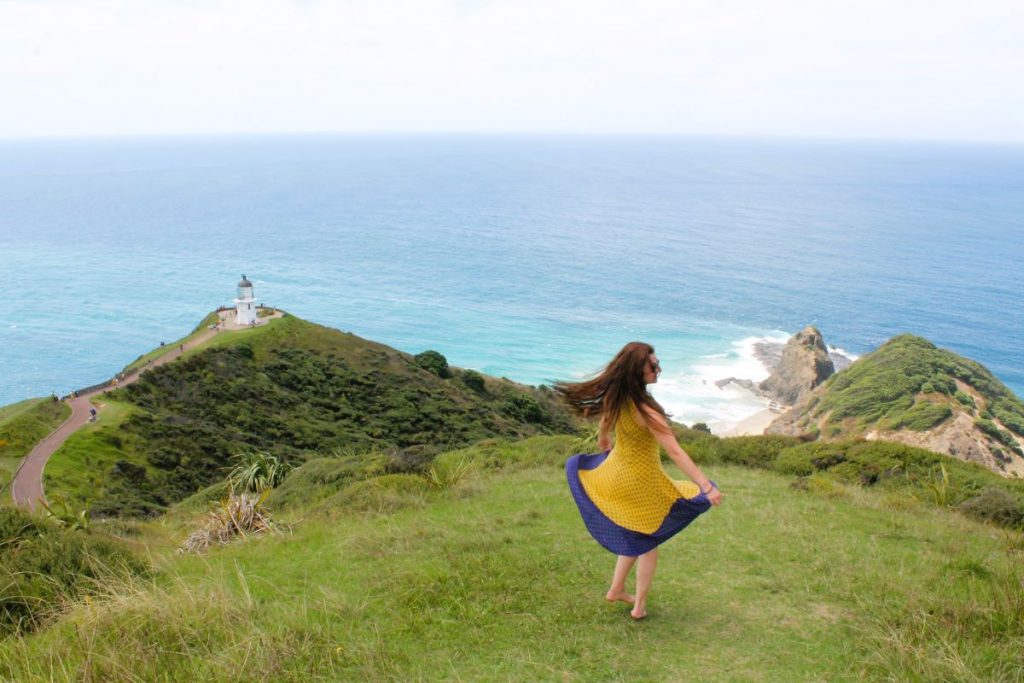
There are several different work visas for New Zealand and each one has various stipulations (and they are not so easy to obtain. However, New Zealand’s Working Holiday Visa is quite easy to get and is a great way to live and work in the country temporarily.
Working Holiday Visa
Working holiday visas to New Zealand are available if you’re in the 18-30 age bracket, but 18-35 in a select few countries. They let you travel and work in New Zealand for up to 12 months, or 23 months if you’re from the UK or Canada. You need to have a return ticket, or enough money to pay for one, and be coming mainly to holiday, with work being a secondary intention.
The Working Holiday Visa to New Zealand is probably the least difficult and least time-consuming visa of all the working holiday visas. It was a very quick process for us; literally, within 4 days of applying, we had our visa. It was very easy for us to set our lives up here in New Zealand.
Accredited Employer Work Visa
To avail of the Accredited Employer Work Visa you will need to have a job offer from a pre-approved New Zealand employer who can provide you with over 30 hours per week of work. Your employer will sponsor your application and the process takes around 15 weeks.
Other popular permits to move to New Zealand:
- Post-study Work Visa: If you’ve recently graduated from a New Zealand university you can apply for this visa. It’s so that you can gain work experience. It lasts for up to 3 years.
- Recognized Seasonal Employer Limited Visa can be given by accredited seasonal employers in industries like agriculture, horticulture, and viticulture. Typically this visa is only given to people from Pacific Nations.
- Specific Purpose Work Visa is for those with specific skills and qualifications needed for a short-term project or event.
- Diplomatic Visa – This visa is for those who are employed by foreign governments ot international organizations in New Zealand.
What are the rules for moving to New Zealand without a job?
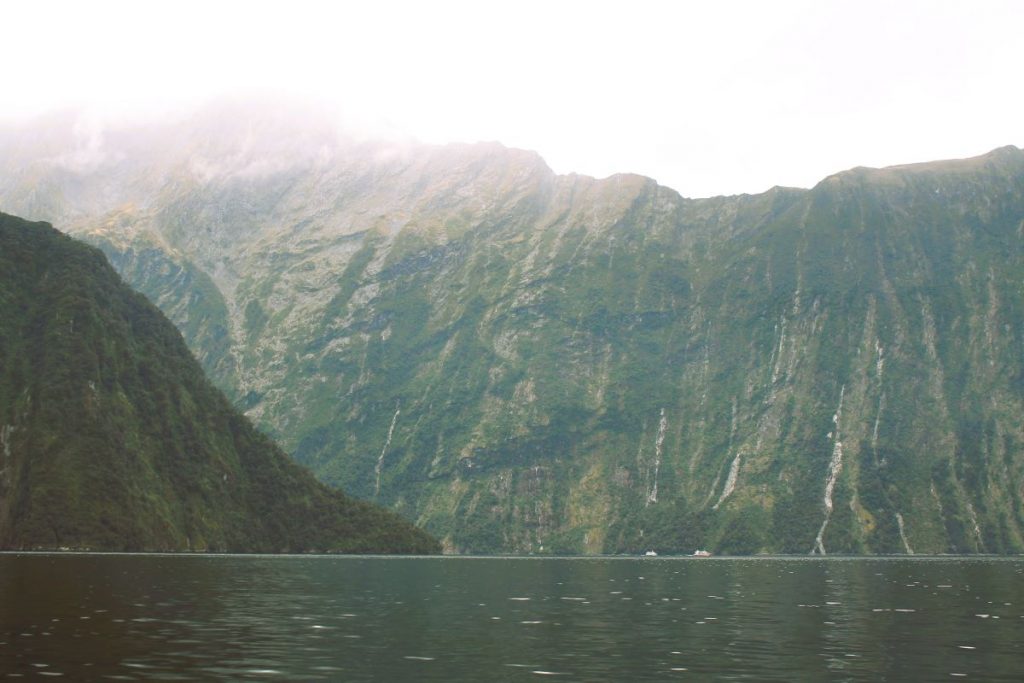
There is a way to move to New Zealand without a job, for example, on the working holiday visa, you don’t need to have a job lined up before you land. However, you are only eligible for this if you’re in the 18-30 age bracket, or aged between 18-35 if you’re from countries like Ireland, Canada, etc.
Read Next: A Milford Sound Cruise is a super-popular thing to do on the South Island!
Is it hard to get a job in New Zealand?
As I said earlier, the work-life balance in New Zealand is amazing. With an average of 5 weeks annual leave, 10 paid sick days, and a minimum wage of $23.15 NZD per hour.
The average salary in New Zealand is around $65,000 NZD – which is pretty decent!
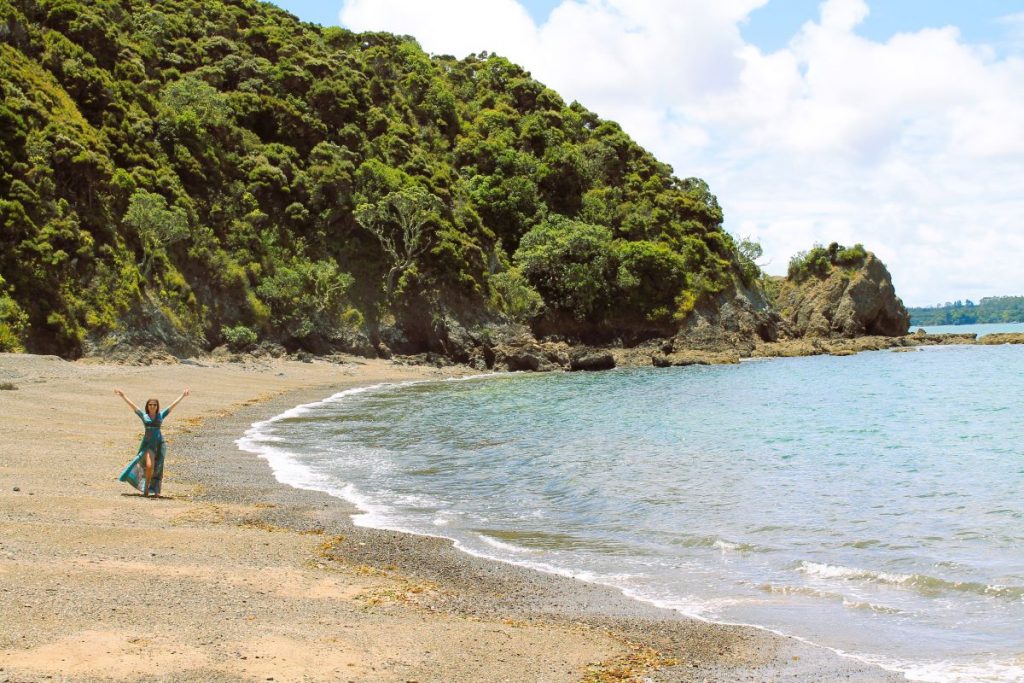
Depending on the type of work you do, it should be fairly easy to get a job in New Zealand. You will find it easier to get a job in bigger cities like Auckland, Wellington, and Christchurch but you may need to start ‘at the bottom’ as employers here favor local experience. While in ‘tourist’ cities like Queenstown many people change careers to work in the tourism industry (hotels, restaurants) as there aren’t many other industries based here.
A good idea is to sign up with a recruitment agency like Adecco or Beyond Recruitment when you arrive in the country.
Some good websites to search for a job in New Zealand, include –
Best cities to live in New Zealand
Auckland
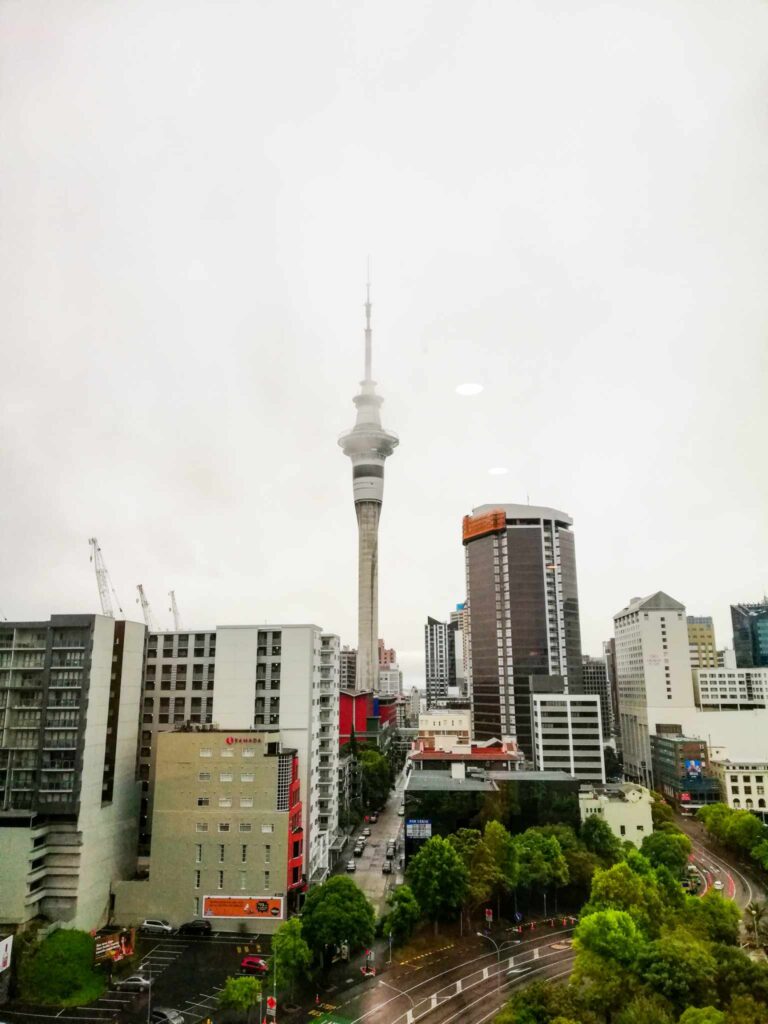
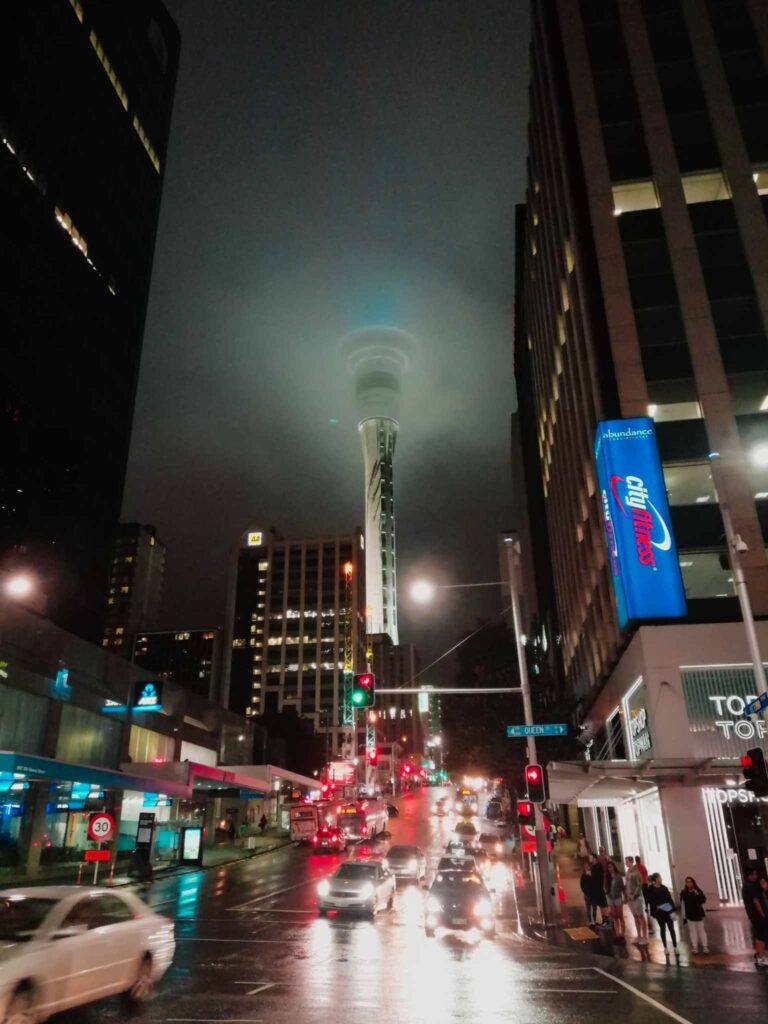
Auckland is the biggest city in New Zealand with a population of over 5 million. It’s also where you’ll likely land when you first arrive in the country as it’s home to New Zealand’s biggest and busiest airport. Auckland is known for being one of the safest cities in the world and the downtown area is also very walkable. The climate here is very mild, and the winters never get too cold.
The average weekly rent in Auckland sits at around $625 NZD for a two-bedroom and the best areas to live in the city include Mt Eden, Ponsonby, and Parnell.
Wellington
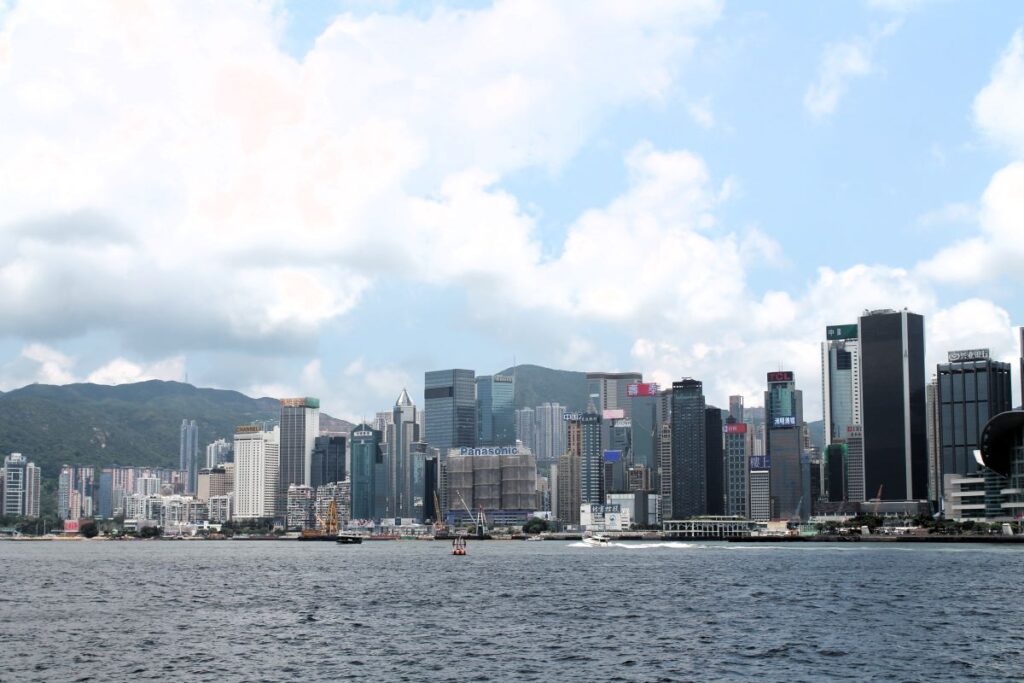
Wellington is the capital city of New Zealand, nicknamed ‘Windy Wellington’ because it’s open to the elements this quirky city is my favorite city in New Zealand. If you love coffee, you’ll feel right at home here as it’s where the Flat White was invented. My favorite things to do in Wellington include wandering down colorful Cuba Street, catching the cable car, and visiting the Te Papa museum.
The average rent in Wellington is $640 NZD per week for a two-bedroom property and the best areas to live in Wellington include Miramar, Oriental Bay, and Pukerua Bay.
Queenstown
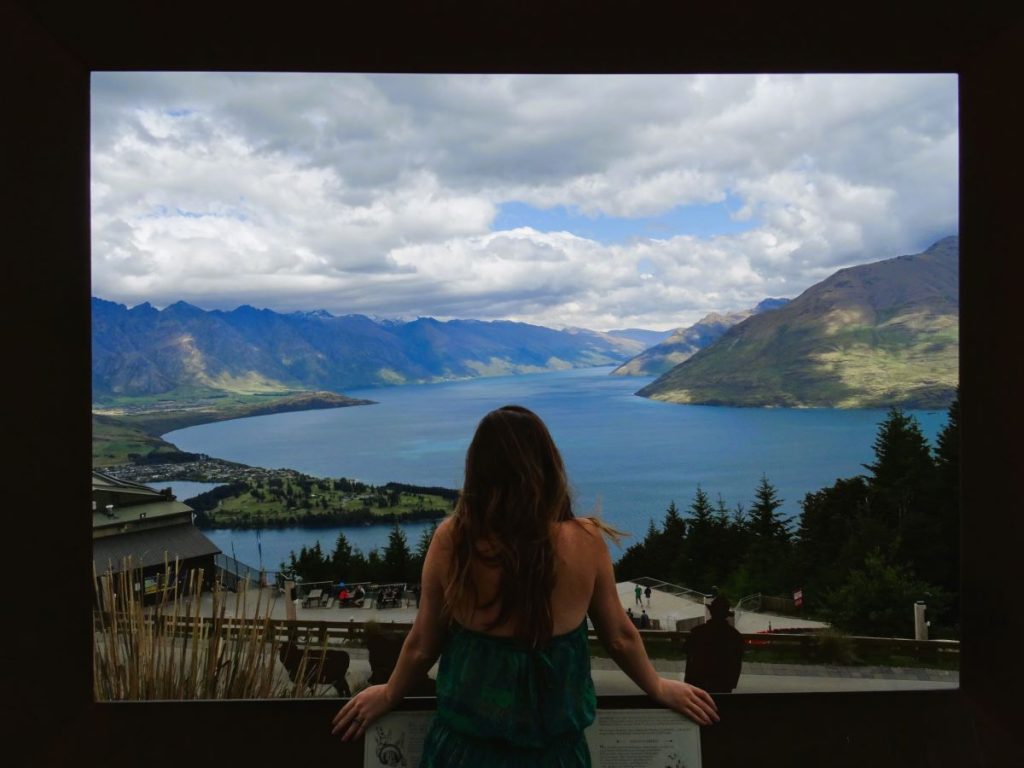
Queenstown is stunningly beautiful – I mean, have you SEEN the photos? And thankfully it’s a great place to live as an expat. We lived in Queenstown for over two years here and had the best time! However, because it’s a resort town – finding a place to live here can be a challenge as Airbnb has taken over the long-term rental market.
For example, you’re looking at paying around $500 NZD per week for a one-bedroom apartment in or close to the CBD and around $900 NZD for a two-bedroom apartment in the CBD. If you go further afield to Shotover Country/ Lake Hayes (a 20-minute drive from town), average rental prices for a one-bedroom decrease to about $400 NZD per week. Or, you can rent a room from about $250 – 300 NZD per week!
If you plan to move to Queenstown, we recommend first joining local Facebook groups to get a ‘feel for the town’ – these groups are also great for finding jobs or rooms to rent. Facebook groups I recommend include –
Related Read: Amazing things to do in Queenstown in the summer
Christchurch
Located on the South Island, Christchurch is the second biggest city in New Zealand with a population of around 400,000. It’s one of the most affordable cities to rent or buy a house in the country, with median rent in Christchurch sitting at $480 NZD per week. The best areas to live in Christchurch include the CBD area, Merivale, and Findleton.
My favorite things to do in Christchurch include wandering through the Botanic Gardens, visiting the Earthquake Memorial, and enjoying the views from the Christchurch Gondola.
Rotorua
Rotorua with a population of 78,000 is a small, friendly city that’s famous for its geothermal activity and Maori culture. Some of the best things to do in Rotorua include a visit to Te Puia, which is one of only two geyser fields in the world, and relaxing at the famous Polynesian Spa. The average weekly rent in Rotorua is $500 NZD.
Bay of Islands
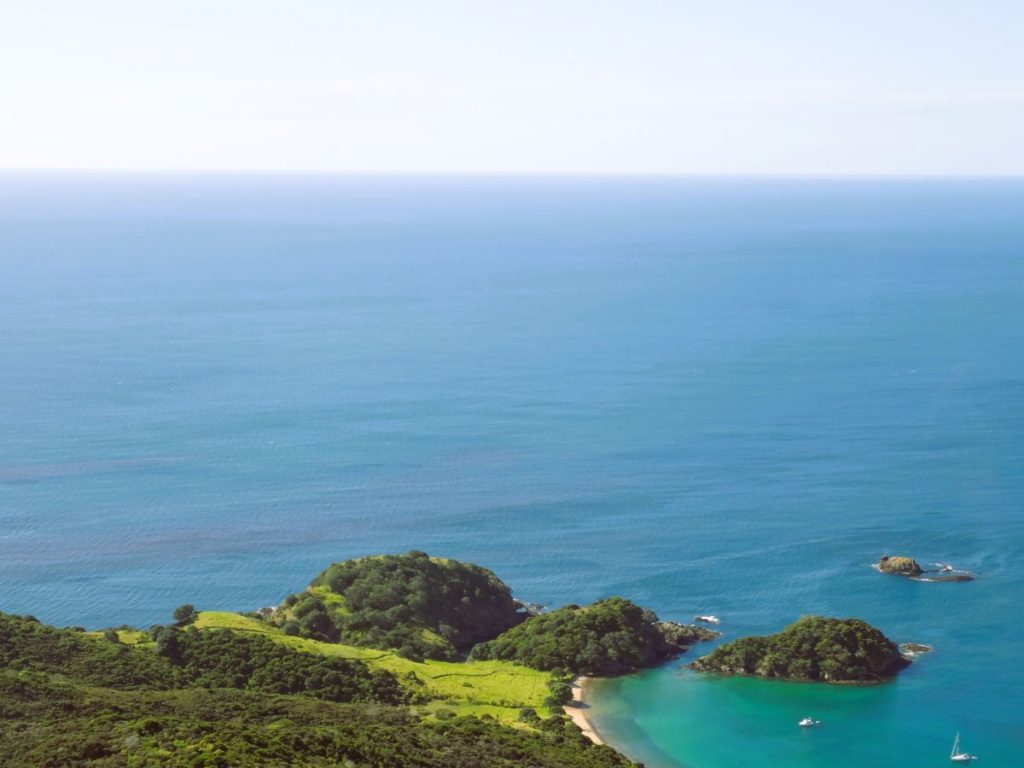
If it’s a beachy lifestyle you’re after look no further than the Bay of Islands in the winterless far north. As you can guess, this region enjoys some of the best weather in New Zealand, and the winters here are very mild. The Bay of Islands is home to stunning beaches and a relaxed way of life. We lived in nearby Kerikeri for over a year and really loved our time there.
The best things to do in the Northland region include visiting the historic Waitangi Treaty Grounds (it’s a super important site to the native Maoris) and catching a boat tour out to the hole in the rock. As for the average rent in the Bay of Islands expect to pay around $550 NZD per week.
Important information once you’ve arrived in New Zealand
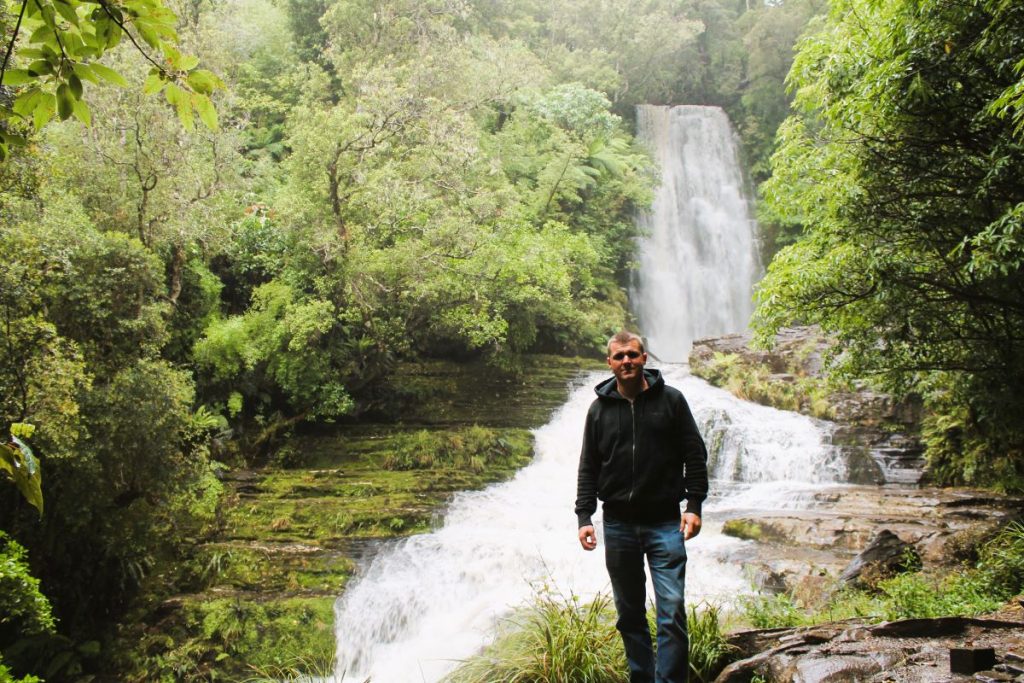
Find a decent place to rent:
Sign up with letting agents like Harcourts and LJ Hooker early so that you get notified early of any rental properties. Other good places to search for a place to rent in New Zealand are on Realestate.co.nz and Trademe
Because the competition is fierce, be sure to come prepared for a rental viewing in New Zealand. The documents you should have at every rental viewing include:
- A form of I.D like your driver’s license or passport
- References from past landlords
- A current work reference
- A current payslip or bank statement that shows your income
Get an IRD number:
Your IRD number in New Zealand is like a social security number, it identifies you for all tax-related events in New Zealand. So, you will need one to work in New Zealand. You can apply for one online when you arrive in New Zealand.
Set up a New Zealand bank account:
Now, some of the bigger banks in New Zealand, such as ANZ and Westpac have the option to set up an account with them while you’re still in your home country. If you apply for your account in advance, you will simply just need to collect your bank card from the bank when you arrive in New Zealand. If you wish to set up your bank account in person, then you will need a form of ID and proof of address.
Getting a New Zealand phone number:
Arrange a New Zealand sim as soon as you arrive, it’s easy to do so in-store at one of the network providers. We went with Spark but Skinny is another popular company.
Alternatively, you could use an eSIM in the beginning as that way you won’t need to change your number or remove the physical SIM from your phone until you’re fully set up in Ireland.
Final thoughts on moving to New Zealand!
Moving to New Zealand was one of the best things we’ve done – we had so much fun in this beautiful country and made friends for life. If you’re eligible for a working holiday visa, I say go for it 1000%. The other work visas are more difficult to get, sure – but the quality of life you’ll enjoy when you land in New Zealand is worth it!
Have you ever considered moving to New Zealand? I’d love to hear about it in the comment section below!
You may also enjoy reading –
12 Things You Must Know Before Renting a Car in New Zealand
How to Spend 3 Days in Queenstown
BEST Campervan Road Trips in New Zealand (Including Campsites)
How to have the BEST 24 hours in Queenstown
PIN THIS TO PINTEREST:
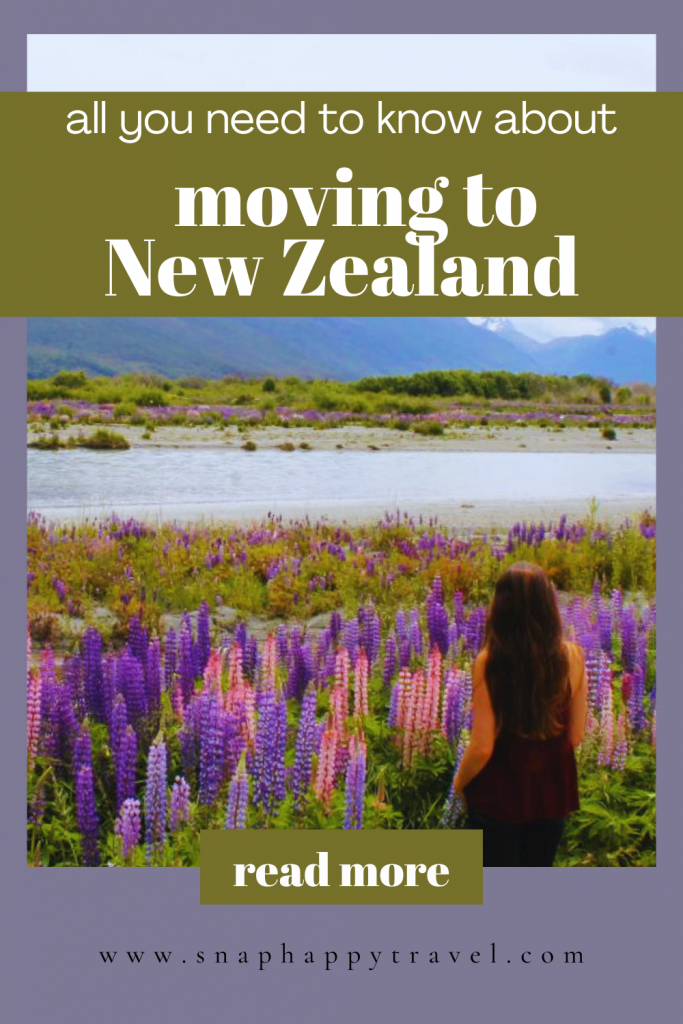
Last Updated on February 13, 2025 by snaphappytravel

